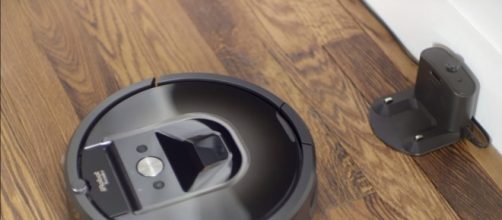When iRobot created Roomba, it was meant to get to every corner of the house for the purpose of toxin elimination and indoor allergy prevention. It was an initial solution for people looking for a more advanced filtration system as well as a vacuum with high-tech sensors to clean the entire floor of a home. Now, these features may serve an additional purpose and that is to generate the updated maps of floor plans and layout of home furnishings.
Map for what?
iRobot would like to either share or sell the data gathered from the house-cleaning robots.
According to its CEO Colin Angle, the maps of the users' home that were allowed to be shared are a great starting point for a whole range of possibilities and opportunities. The Smart Home division will deliver better on services if given this kind of information including the operation of security cameras and smart thermostats.
The company is banking on the technological advantage of the Roomba, which can be used to create a mental map of the space. In fact, Angle emphasized that it has been made compatible with Amazon's voice assistant Alexa earlier this year. They are now looking to discuss further engagements with the big three tech giants namely Amazon, Apple, and Google. iRobot seeks to sell its maps to at least one of these three if not all.
So far, no comment or response has been released from the three regarding this scoop.
Issues on privacy and security
The popularity of smart-home technology continues to go up with more home appliance getting connected to the Internet these past years. This brings a significant difference to home owners because of the convenience and control attached to it.
Clearly, it is undeniable how such innovation improved the lives of many people.
However, such freedom advantage also sparked concerns about privacy and security. With the endless possibilities of technology use and abuse, it is not unlikely for people to be wary of strangers getting hold of access to their homes.
A number of consumer advocates have something to say about the proposal.
Analyst Ben Rose says customers could find it a scary thing while Open Rights Group director Jim Killock thinks it is a creepy example of how companies undermine the privacy of its customers for profit. He proceeds to say that these kinds of products provide the companies access to our personal and private information. Unfortunately, such kind of personal data is not necessarily protected under data protection law.
iRobot maintains they are well aware of this priority. According to an email statement sent by the company, they will ask permission from the users prior to storing map data. Since 2015, the Roomba has been mapping homes using either a camera and sensors or visual localization and cloud-connected app control.
These maps are then used so the robo-vacuums can navigate the house without having to topple over lamps and furniture. Moving forward, if users would allow, the map data could be used to enable the smart home and other devices to function better.


